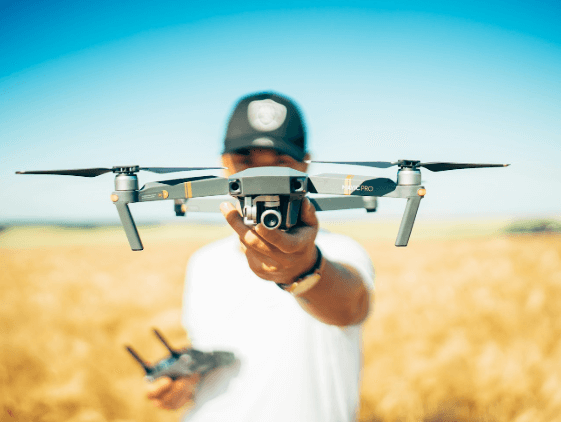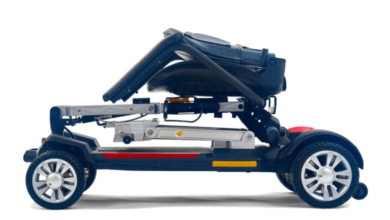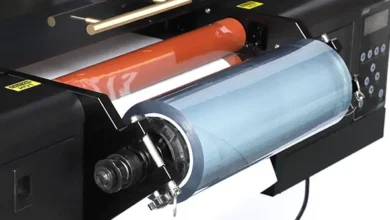Improving Yields with Agricultural Drones in Auburn Alabama

Of late, technology in agriculture has made waves, finding new ways to solve age-old problems. One of the most promising developments is agricultural drones, and at the heart of this revolution is Auburn, Alabama. Drones have gradually become essential tools for local farmers, providing real-time, precise data that can significantly improve productivity and efficiency. In this blog, we’ll explore how Agricultural Drones in Auburn Alabama, are transforming farming and why they represent the future of agriculture.
Explaining Agricultural Drones in Auburn Alabama
Agricultural drones are flying devices explicitly engineered for farm use. They are equipped with sensors, cameras, and technology that allow farmers to gather diverse data on crops, soil, and overall farm health. Drones can fly over vast areas of farmland in very short periods, capturing high-resolution images and other valuable information that would take days to collect manually.
Drones can capture not only aerial photos but also thermal and multispectral imagery that reveal details about crop health, water usage, and pest infestations. The ability to gather such diverse data quickly makes drones a cornerstone of modern farming.
How Drones Have Changed Farming
- Improved Crop Monitoring: Frequent and precise crop monitoring is one of the most significant benefits of drones in agriculture. In Auburn, where farmers grow everything from cotton to corn, the ability to monitor crops on time makes all the difference. Drones provide high-resolution images that help farmers detect issues early, such as diseases, pests, or nutrient deficiencies. Early detection permits farmers to take corrective measures and avoid significant setbacks, saving both time and money.
- Increased Efficiency and Time Savings: Traditional crop monitoring methods, such as walking fields or using fixed cameras, can be time-consuming and limited. A drone can cover large areas in a fraction of the time it would take for manual inspections. This frees up time for farmers to focus on other critical tasks, such as planning irrigation, fertilization, and pest control strategies.
- Precision Agriculture: Precision agriculture leverages data to make informed decisions that optimize farming practices. Drones play a central role in this concept, collecting detailed data that provides insights into field conditions. For example, drones equipped with cameras can capture images of crop health by analyzing reflected light. This helps farmers identify areas needing attention, such as those with poor soil or insufficient water. By targeting specific problem areas, farmers can reduce waste and increase yields.
- Cost-Effectiveness: Although the initial investment in drones may seem high, the long-term benefits outweigh the costs. Drones help Auburn farmers manage resources like water, fertilizers, and pesticides more efficiently. By pinpointing where these resources are needed, farmers can avoid over-application, saving money and reducing environmental impact. Additionally, early disease detection prevents costly treatments or crop losses.
- Improved Irrigation Management: Water management is a critical issue for farmers, especially in Auburn, where weather can be unpredictable. Drones equipped with thermal sensors can assess moisture levels in crops and identify areas needing irrigation. This data allows farmers to optimize water usage, guaranteeing crops receive the right amount of water at the right time. This conserves water, improves crop health, and prevents overwatering issues like root rot.
- Better Crop Spraying: Drones are increasingly used for precision crop spraying, reducing reliance on large machinery. Drones can spray fertilizers, pesticides, and herbicides with exceptional precision, targeting specific areas that need attention. This reduces chemical usage and even confirms practical application.
How Auburn Farmers Are Using Agricultural Drones
Local farmers are already seeing the benefits of Agricultural Drones in Auburn Alabama. Some use drones to monitor crop health, while others employ them for irrigation and fertilization management. For instance, a cotton farmer might use a drone to identify dry spots or areas with nutrient deficiencies. Based on this information, farmers can adjust irrigation schedules and apply fertilizer only where they need it.
Drones are also used for soil health monitoring. By capturing detailed images of the soil, drones help farmers assess factors like erosion, compaction, and organic matter levels. This information guides decisions on crop rotation, tilling, and soil amendments.
The Future of Agricultural Drones in Auburn
The future of agricultural drones in Auburn is bright. As drone technology continues to evolve, farmers will gain access to even more powerful tools for farm management. Integration with artificial intelligence (AI) and machine learning will allow more precise data analysis, allowing farmers to make decisions based on the latest information.
As drones become more affordable, smaller farms in Auburn will also benefit from precision agriculture, leveling the playing field and allowing farmers of all sizes to leverage this technology.
Concluding
Agricultural Drones in Auburn Alabama, are revolutionizing how farmers approach crop management, irrigation, and resource usage. Whether you’re a seasoned farmer or simply curious about the future of agriculture, it’s clear that drones are here to stay. They are making Auburn’s farming community more robust, more innovative, and better prepared to face future challenges. AG Drones by Hinterland Drones are the best in the business when it comes to helping farmers. Visit their website to check out more of their drones.





